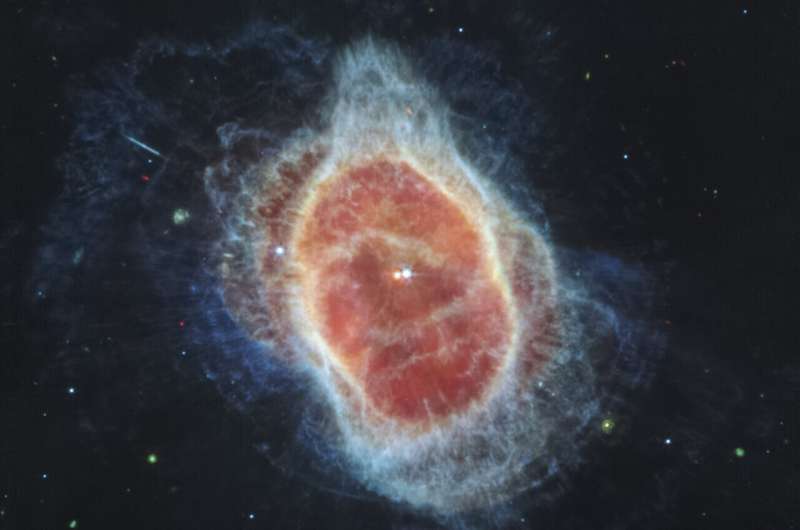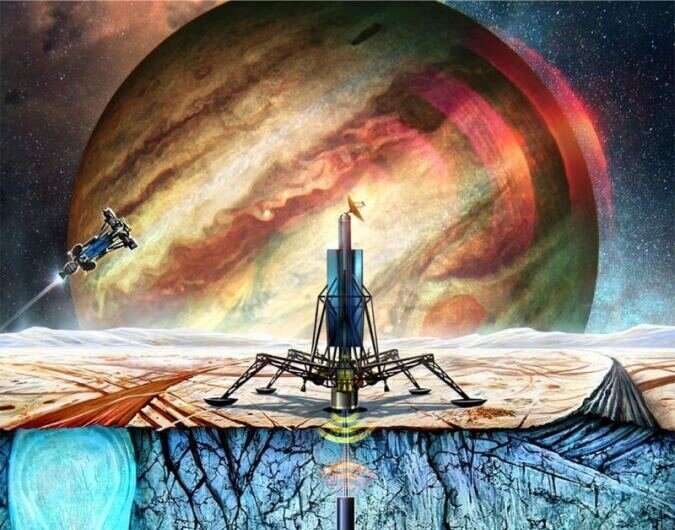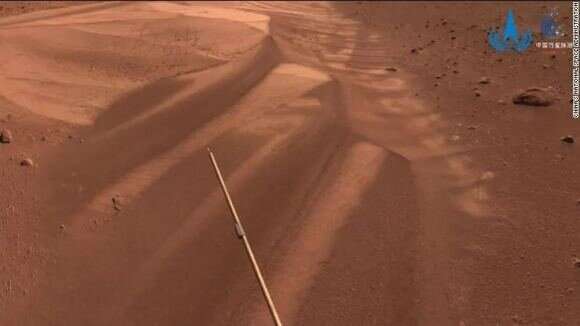
Copernical Team
Maiden Flight of Vega-C: Top of new European rocket from Beyond Gravity
 Beyond Gravity (formerly RUAG Space) delivered the payload fairing, the top of the new medium-lift European rocket Vega-C, which will launch tomorrow. Beyond Gravity also produced the launcher computer and the payload adapter system.
Tomorrow, Wednesday, 13 July, the new medium-lift European Vega-C rocket is scheduled to lift-off from the European spaceport in Kourou for its inaugural flig
Beyond Gravity (formerly RUAG Space) delivered the payload fairing, the top of the new medium-lift European rocket Vega-C, which will launch tomorrow. Beyond Gravity also produced the launcher computer and the payload adapter system.
Tomorrow, Wednesday, 13 July, the new medium-lift European Vega-C rocket is scheduled to lift-off from the European spaceport in Kourou for its inaugural flig Perseverance takes first core from the Delta
 Perseverance has taken its first sample from the Jezero delta!
Since arriving at the delta, the rover has been observing and abrading different rocks to inform whether they are good candidate for our first core sample in this area. The first few rocks that were considered either fractured too easily or had surfaces that were too rough to safely place the drill. The team searched for a rock
Perseverance has taken its first sample from the Jezero delta!
Since arriving at the delta, the rover has been observing and abrading different rocks to inform whether they are good candidate for our first core sample in this area. The first few rocks that were considered either fractured too easily or had surfaces that were too rough to safely place the drill. The team searched for a rock Machine learning 'phones home' for famous Martian rock
 New Curtin-led research has pinpointed the exact home of the oldest and most famous Martian meteorite for the first time ever, offering critical geological clues about the earliest origins of Mars.
Using a multidisciplinary approach involving a machine learning algorithm, the new research - published in Nature Communications - identified the particular crater on Mars that ejected the so-ca
New Curtin-led research has pinpointed the exact home of the oldest and most famous Martian meteorite for the first time ever, offering critical geological clues about the earliest origins of Mars.
Using a multidisciplinary approach involving a machine learning algorithm, the new research - published in Nature Communications - identified the particular crater on Mars that ejected the so-ca Hopping space dust may influence the way asteroids look and move
 Like corn kernels popping in a frying pan, tiny grains of dust may hop around on the surface of asteroids, according to a new study from physicists at CU Boulder.
That popcorn-like effect may even help to tidy up smaller asteroids, causing them to lose dust and look rough and craggy from space.
The researchers published their results July 11 in the journal Nature Astronomy. Their fin
Like corn kernels popping in a frying pan, tiny grains of dust may hop around on the surface of asteroids, according to a new study from physicists at CU Boulder.
That popcorn-like effect may even help to tidy up smaller asteroids, causing them to lose dust and look rough and craggy from space.
The researchers published their results July 11 in the journal Nature Astronomy. Their fin NASA's Webb reveals steamy atmosphere of distant planet in detail
 NASA's James Webb Space Telescope has captured the distinct signature of water, along with evidence for clouds and haze, in the atmosphere surrounding a hot, puffy gas giant planet orbiting a distant Sun-like star.
The observation, which reveals the presence of specific gas molecules based on tiny decreases in the brightness of precise colors of light, is the most detailed of its kind to d
NASA's James Webb Space Telescope has captured the distinct signature of water, along with evidence for clouds and haze, in the atmosphere surrounding a hot, puffy gas giant planet orbiting a distant Sun-like star.
The observation, which reveals the presence of specific gas molecules based on tiny decreases in the brightness of precise colors of light, is the most detailed of its kind to d Webb Telescope: What will scientists learn?

The James Webb Space Telescope's first images aren't just breathtaking—they contain a wealth of scientific insights and clues that researchers are eager to pursue.
Here are some of the things scientists now hope to learn.
Into the deep
Webb's first image, released Monday, delivered the deepest and sharpest infrared image of the distant universe so far, "Webb's First Deep Field."
The white circles and ellipses are from the galaxy cluster in the foreground called SMACS 0723, as it appeared more than 4.6 billion years ago—roughly when our Sun formed too.
The reddish arcs are from light from ancient galaxies that has traveled more than 13 billion years, bending around the foreground cluster, which acts as a gravitational lens.
Baby stars, dancing galaxies: NASA shows new cosmic views

A sparkling landscape of baby stars. A foamy blue and orange view of a dying star. Five galaxies in a cosmic dance. The splendors of the universe glowed in a new batch of images released Tuesday from NASA's powerful new telescope.
The unveiling from the $10 billion James Webb Space Telescope began Monday at the White House with a sneak peek of the first shot—a jumble of distant galaxies that went deeper into the cosmos than humanity has ever seen.
Uncontrolled rocket descents pose a 10% risk of killing one or more people over the next ten years

A swarm of swimming robots to search for life under the ice on Europa

When Galileo pointed his telescope at Jupiter 400 years ago, he saw three blobs of light around the giant planet, which he at first thought were fixed stars.
China's Tianwen-1 has imaged the entire surface of Mars, completing its primary mission

After exploring Mars for more than a year, China's Tianwen-1 space probe has successfully taken images covering the entire Red Planet, China's National Space Administration (CNSA) announced on June 29. Tianwen-1, which translates to "quest for heavenly truth," consists of six separate spacecraft: an orbiter, two deployable cameras, lander, remote camera, and Zhurong rover. The images in question were taken by the orbiter while circling Mars 1,344 times, capturing images of the Red Planet from every angle while Zhurong explored the surface. in the statement, CNSA said the probe has now completed all of its tasks, which included taking medium-resolution images covering the entire planet.
Tianwen-1 was launched on July 23, 2020, amidst the turmoil of the COVID-19 global pandemic.

